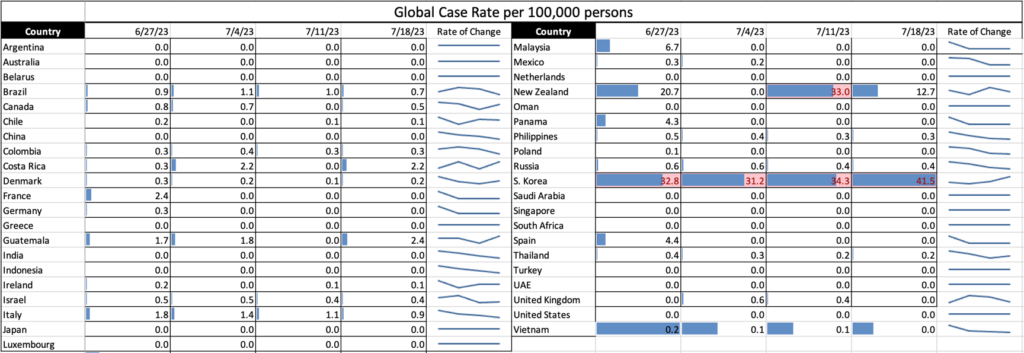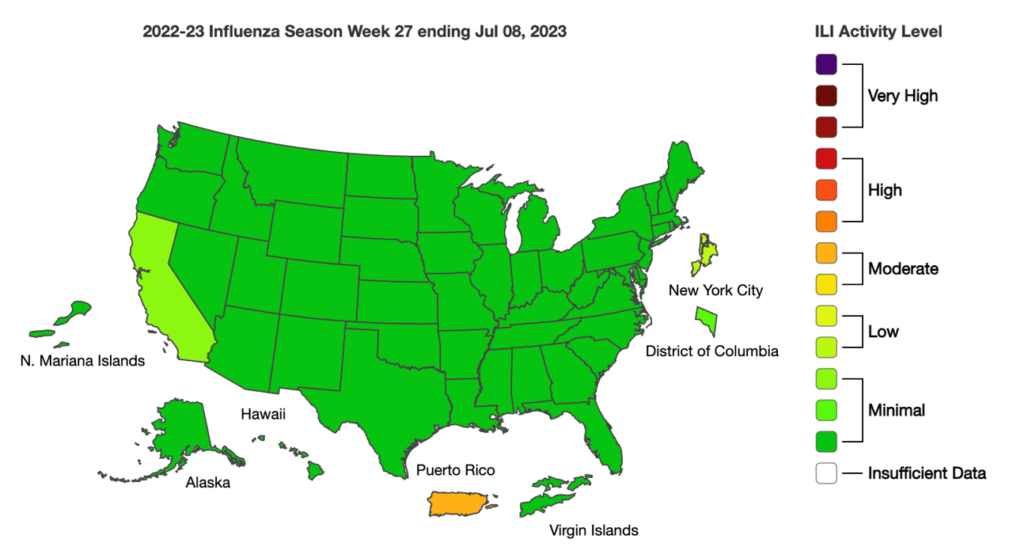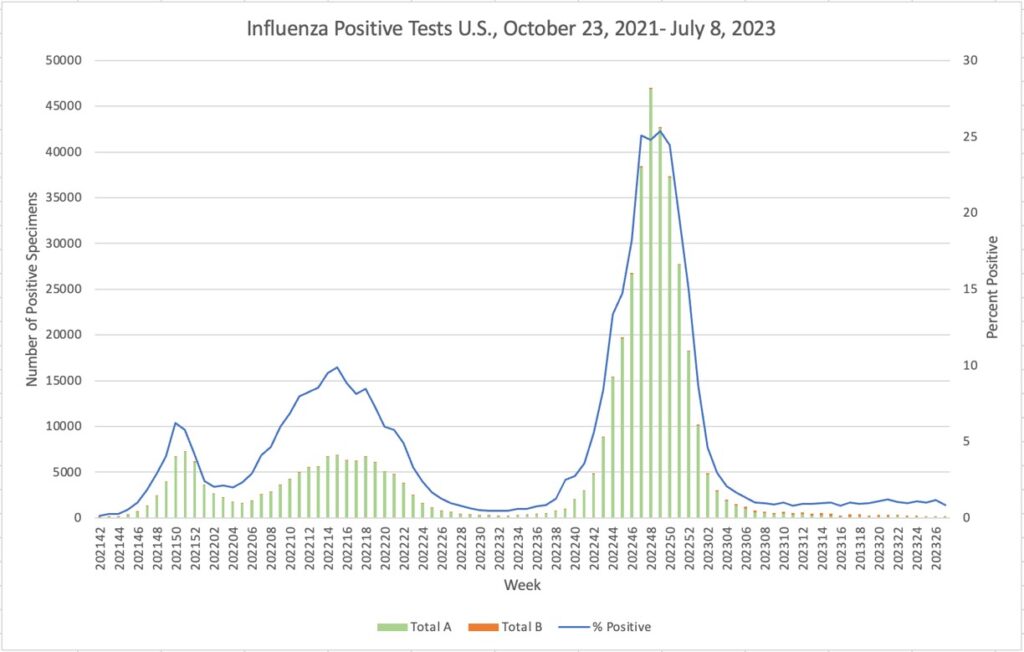While TAG’s recent article discussed the continuing transmission of COVID, particularly from travel during the busy summer season, the U.S. has reached a milestone against the virus, with CDC and other statistics showing that the number of daily excess deaths – which include COVID numbers – is below 1 percent. At the height of COVID, that number was closer to 30 percent. While the story is a bit less positive in other countries, it is similar, with excess deaths significantly decreasing.
| As listed in a NYT article, the progress can be attributed to: |
· About 75% of U.S. adults have received at least one vaccine dose.
· More than 75% of Americans have had COVID, providing some natural immunity.
· About 97% of adults have either had COVID or received the vaccine.
· Treatments, such as Paxlovid, are now available to reduce the severity of symptoms
This does not mean that the risk of COVID is passed, rather, as the article noted, “the virus has turned into an ordinary illness.” Additionally, even those that are high risk and immunocompromised are at much less risk of severe illness than in the past. So, while the pandemic was “declared” over nearly a year ago, we now have statistics to show that it truly is.
COVID Risk Matrix:

Influenza:


- With monsoons across Northern India, there have been increased reports of mosquito-borne diseases including malaria, dengue, and GI illnesses.
- Australia is experiencing a surge in influenza B cases in Queensland after an initial burst of influenza A cases to start off the season. One child has died. There is a high rate of unvaccinated patients. There have been three times more hospital admissions for influenza B than influenza A in children aged less than five years.
- London faces the risk of a measles resurgence due to lower vaccination rates. UKHSA modelling suggests that, unless MMR vaccination rates improve, London could see a measles outbreak with tens of thousands of cases. The most vulnerable are those aged 19-25, whose vaccine status may be low.
- Norovirus
- On June 30, 2023, the Minnesota Department of Health notified the Centers for Disease Control and Prevention about a norovirus outbreak. Nine people were sickened after allegedly eating oysters from Nova Scotia. The oysters were also sold in Canada. The FDA is working with authorities to investigate this outbreak.
- Norovirus outbreaks on cruises are up this year. To date, 13 have been reported; there were 2 within this same timeframe in 2022.
- On July 9, the Argentine Ministry of Health issued an announcement stating that since 2023, 118 cases of type A streptococcal infection have been found throughout the country, including 16 deaths. At present, nearly 30% of the infection cases are concentrated in the capital Buenos Aires and surrounding areas. Transmission occurs through close contact with an infected person and can be transmitted through coughing, sneezing, or contact with a wound.
- FDA approved a new drug, Beyfortus, to prevent RSV in babies and toddlers. Beyfortus is a monoclonal antibody with activity against RSV. Monoclonal antibodies are lab-made proteins that mimic the immune system’s ability to fight off harmful pathogens.





